It’s done. Whether you’re a Tolkien fan or not, I think we can all breath a sigh of relief now that 2020 is finally over, bringing an end to 366 straight days of what felt like never-ending chaos. Sadly, the first dawn of 2021 won’t magically heal the pain and hardship we’ve all endured, nor will it bring back the many close friends, family members, and loved ones we’ve lost. But it can start us on a path towards a better future for all of us, and I hope and pray that, if 2020 was akin to the perilous wreck of Mount Doom, than 2021 will be at least a little closer to the Fields of Cormallen, when our war-hardened heroes “laughed and wept”, and a minstrel carried them through song and “sweet words” to “regions where pain and delight flow together and tears are the very wine of blessedness”.
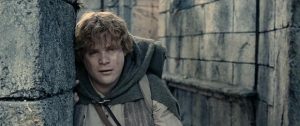
Although I mostly just cover movies on this blog, I wanted to use this special day to give back to the incredible fan community centered around the works of J.R.R. Tolkien, by commemorating some of the Tolkien community’s greatest figures who passed on in the last year, and the incredible, unforgettable legacies they’ve left behind. This brief list is by no means complete or comprehensive, but know that if I have forgotten any greatly significant name, it is an error of my own ignorance that I will happily correct.
Orson Bean: July 22, 1928 – February 7, 2020
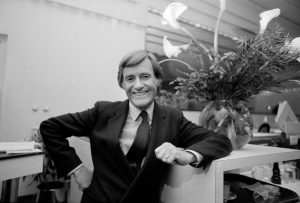
The Tolkien fandom was blessed to have Orson Bean lend his vocal talents not once, but twice, to the world of Middle-earth – first voicing Bilbo Baggins in the 1977 Rankin/Bass animated adaptation of The Hobbit, before later taking on the role of Bilbo’s nephew, Frodo Baggins, in the studio’s adaptation of The Return Of The King (a valiant, if ultimately unsuccessful, attempt to conclude the animated epic saga started in Ralph Bakshi’s The Lord Of The Rings, which only covered the first half of J.R.R. Tolkien’s novel). Bean began his long career in Hollywood as a television comedian, hosting the Basin Street musical radio program in the early 50’s. His ambitions only momentarily halted by an attempt to blacklist him for dating a Communist Party member, Bean continued to appear in films, TV, and theatre well into his 80’s, with guest spots on some of the past decade’s biggest sitcoms and reality TV programs.
Ian Holm: 12 September, 1931 – 19 June, 2020
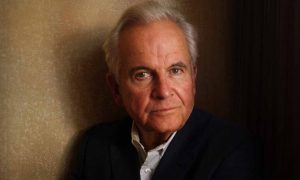
Similarly to Bean, the great Sir Ian Holm will be recognized fondly by Tolkien fans for both his vocal performance as Frodo Baggins in the beloved 1981 BBC Radio adaptation of The Lord Of The Rings, and for his iconic portrayal of Bilbo Baggins – a role he solidified in live-action throughout Peter Jackson’s The Lord Of The Rings trilogy and in two brief but memorable appearances bookending Jackson’s The Hobbit trilogy. His Bilbo is widely regarded as the definitive Bilbo: manic, wild-haired, and charmingly quirky (much of that quirkiness deriving from Holm’s talent for improvisation) – but with a warmth and quiet dignity that Holm made sure to put front and center at all times. Bilbo was Holm’s final role as well as one of his most legendary, but the Tony and BAFTA-Award winning actor received just as much praise for his performances in Alien, Brazil, The Fifth Element, and Chariots Of Fire (for which he received an Academy Award nomination), as well as for his three separate takes on Napoleon Bonaparte – the best by far being in the 1981 cult classic Time Bandits.
Andrew Jack: 28 January, 1942 – 31 March, 2020
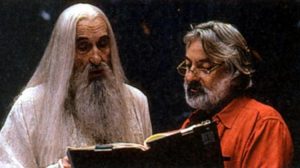
Behind every great movie, there is an entire army of great crewmembers putting painstaking effort into every little detail that has to be seen or conveyed somehow onscreen. Andrew Jack, the dialect coach for Peter Jackson’s The Lord Of The Rings trilogy, was one of those tireless soldiers, crafting the enchantingly unique accents of Middle-earth before passing on that talent (as well as an extensive knowledge of Elvish languages) to the actors themselves. That level of detail is part of what makes Jackson’s trilogy stand out, as one of the first fantasy adaptations to take the source material seriously and attempt to build something that was grounded in reality, rather than poking fun at itself and the entire genre. Jack continued working as a dialect coach, while also making a brief but notable onscreen appearance as the character of Caluan Ematt in The Force Awakens and The Last Jedi. He passed away due to COVID-19 while working on Matt Reeves’ The Batman.
Barbara Remington: 23 June, 1929 – 23 January, 2020
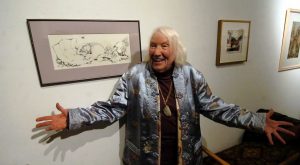
Tolkien fandom has always had a strong artistic component – ever since J.R.R. himself, who sketched and painted extensively. And American artist Barbara Remington deserves to be remembered alongside the greats such as Alan Lee, John Howe, and Ted Nasmith: her beautiful cover artwork for Ballantine Books’ first paperback editions of both The Hobbit and The Lord Of The Rings quickly became notorious, largely because of how distanced it was from the source material. Remington’s swirling, brightly-colored designs included fantastical flora and fauna such as emus, lions, and a massive pink fruit tree. Tolkien himself was very confused by the art, but, as Remington herself later explained, the embarrassing blunder was due to her not being able to actually read the book before painting the artwork – once she did, she fell in love with the story and said that, not only would she have painted something entirely different if she could, but she might have felt too intimidated to even try due to the scope and significance of the books. Personally, I must admit I’ve warmed up to Remington’s characteristic psychedelic style, and am deeply sorry we may never see the collection of other unofficial artworks based on the books that she designed in her later life.
Christopher Tolkien: 21 November, 1924 – 16 January, 2020
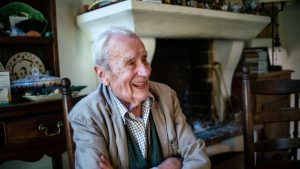
If anyone on this earth lived and breathed Middle-earth, it was Christopher John Reul Tolkien, who dedicated almost his entire life to exploring the extent of his father’s fantasy world. Christopher grew up with the bedtime stories that would later blossom into The Hobbit, and spent much of his childhood and youth reading and critiquing his father’s manuscripts, assisting in the writing process of The Lord Of The Rings even while stationed in South Africa with the Royal Air Force during World War II. Many of the book’s most notable elements can be attributed to Christopher’s input: including the iconic surname of “Gamgee”, which J.R.R. himself wanted to change to the far less unique-sounding “Goodchild”. In 1973, upon being handed the reigns to his father’s literary legacy, Christopher determined to finally publish his father’s true masterwork, The Silmarillion: a collection of epic stories from the prehistory of Middle-earth that J.R.R. had left only partially-completed and hopelessly disorganized at the time of his death. The work took several years and exhaustive edits, but was completed for publication in 1977, and Christopher soon followed with an even longer and more ambitious series of books dedicated to recounting his father’s entire writing process: every scattered note, every rewrite, every idea scrapped and revisited. Unfinished Tales followed in 1980 and became an instant hit, allowing readers a chance to learn more about the Second Age of Middle-earth (which will be the setting for Amazon Prime’s upcoming adaptation). Christopher continued to publish books of this sort up until 2018, with the last of the three “Great Tales”. His harsh views on Jackson’s film trilogy caused quite a stir, but I feel he should be remembered most for his efforts to preserve and protect the legacy with which he was entrusted. For Christopher was a steward of Middle-earth who succeeded in his mission, and now that he has passed on, he has given us all the responsibility to follow in his footsteps and continue that stewardship as we move forward into a new era. And that may be an encouraging thought.
Take comfort in the things that we as a community have gained this year (about which I may write a separate post, so stay tuned), and in the knowledge that those whom we have lost will not be forgotten, but that their legacies will live on. Again, I apologize if anyone has been left off of this list that should have been included, but I ask you to please share that information in the comments. Stay safe and read Tolkien. Until next year, my friends.



